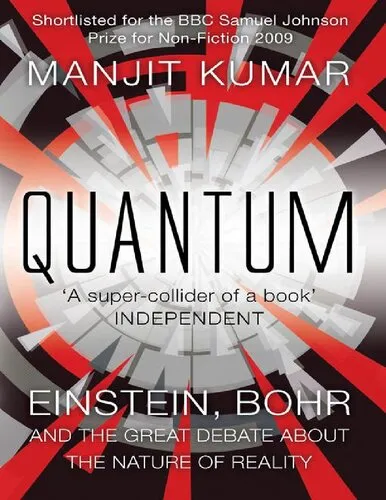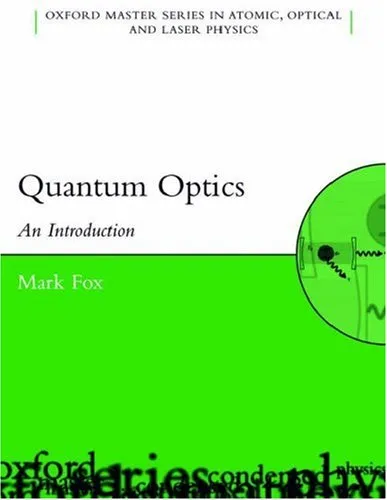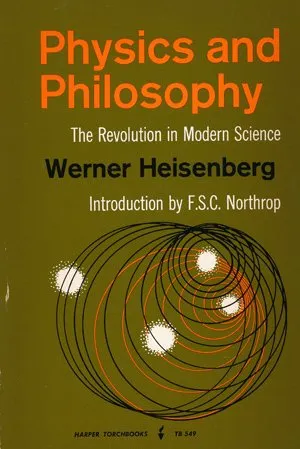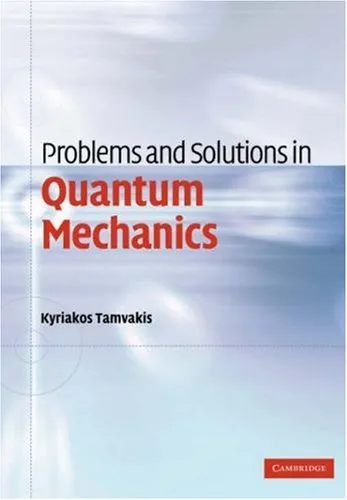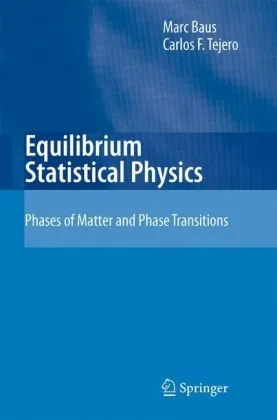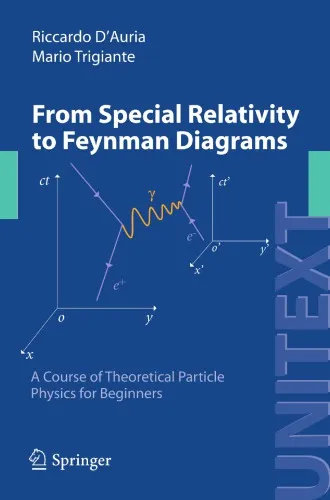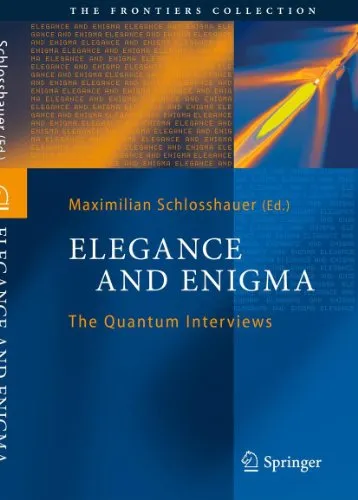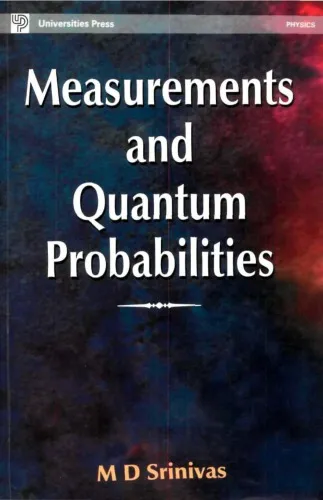Meeting the Universe Halfway: Quantum Physics and the Entanglement of Matter and Meaning
4.6
Reviews from our users

You Can Ask your questions from this book's AI after Login
Each download or ask from book AI costs 2 points. To earn more free points, please visit the Points Guide Page and complete some valuable actions.کتاب های مرتبط:
Introduction to "Meeting the Universe Halfway"
Meeting the Universe Halfway: Quantum Physics and the Entanglement of Matter and Meaning, authored by Karen Barad, is a groundbreaking and interdisciplinary exploration of the mutual interconnectivity between matter, meaning, and the nature of reality itself. Published in 2007, this book blends insights from quantum physics, philosophy, feminist theory, and poststructuralist thought to present a revolutionary perspective on the entangled relationship among the human, the non-human, and the material world. By challenging traditional dualistic frameworks and emphasizing a profoundly relational ontology, this work redefines how we think about agency, ethics, and the very nature of what it means to "know" the world around us.
At its core, the book introduces an innovative theoretical framework called "agential realism." This concept is rooted in the insights of quantum physics, especially the work of physicist Niels Bohr, and emphasizes the inseparable entanglement of "matter and meaning." Rather than treating these as dichotomous categories, Meeting the Universe Halfway reveals how they mutually co-constitute one another in dynamic intra-actions.
More than just a meditation on the implications of modern scientific discoveries, Barad's work demands that we rethink our ethical and political responsibilities in a world where the boundaries between observer and observed blur. The reader is encouraged to recognize that humans are not detached from the phenomena they observe; instead, we are actively entangled with the universe at every level. As such, this book is a clarion call for a more accountable, responsive, and ethical engagement with the material world.
Detailed Summary of the Book
Divided into several rich and thought-provoking chapters, Meeting the Universe Halfway is an ambitious attempt to bridge the seemingly disparate domains of quantum physics, poststructuralist philosophy, and feminist theory. Barad begins by tackling the implications of quantum mechanics, particularly the principle of complementarity advanced by Niels Bohr. This principle underpins her argument against classical Cartesian dualism, which separates mind and matter, subject and object, and instead affirms their inherent entanglement.
A key concept introduced in the book is "intra-action," a term Barad coins to replace the more conventional "interaction." Unlike interaction, which presupposes the independent existence of distinct entities that then come into relation, intra-action emphasizes that entities and phenomena emerge together and are always-already entangled. Through this lens, the distinctions between humans, objects, and environments dissolve, giving rise to a radically relational understanding of the universe.
The book also grapples with the ethical and political implications of its theoretical insights. Barad argues that if we are entangled with the world, there can be no "outside" perspective from which to judge or act. This recognition of entanglement calls for a form of “responsive accountability,” whereby human agents acknowledge their role in shaping the phenomena they observe and act upon.
The fusion of physics and humanities is one of the most striking features of Barad's work. By engaging deeply with feminist theorists such as Judith Butler and Donna Haraway, alongside quantum physicists like Bohr, Barad illustrates how science and philosophy are not isolated disciplines but can inform and transform one another.
Key Takeaways
- Traditional distinctions between subject and object, or mind and matter, are inadequate for understanding the entangled nature of reality.
- Intra-action replaces interaction, highlighting how relationships and phenomena emerge together rather than being pre-defined.
- Science and humanities are deeply interconnected, and interdisciplinary approaches are essential for tackling complex questions.
- Human beings bear ethical responsibilities for their entanglements with the world and must act with accountability and responsiveness.
- The boundaries we perceive—between humans and non-humans, culture and nature, or even space and time—are not fixed but dynamically co-constituted.
Famous Quotes from the Book
"We are not outside observers of the world; we are part of the world in its ongoing intra-activity."
"Reality is not composed of things-in-themselves or things-behind-phenomena but things-in-phenomena."
"Ethics is not a matter of transcendence, but of responsibility and accountability for what materializes."
Why This Book Matters
Meeting the Universe Halfway is more than just an academic text; it is a transformative intellectual journey that reorients how we understand and engage with the world. By dismantling traditional binaries and emphasizing relationality and entanglement, Barad introduces a theoretical framework with profound implications for science, philosophy, and social justice.
In an era grappling with ecological crises, technological changes, and social inequalities, the book provides a much-needed ethical lens. By acknowledging the interconnectedness of all beings and phenomena, it challenges us to rethink notions of agency, responsibility, and care. The blending of quantum physics with feminist thought serves as a testament to the power of interdisciplinary research in addressing the most pressing questions of our time.
Ultimately, Meeting the Universe Halfway is an invitation to engage with the universe in a way that is not only intellectually rigorous but also ethically accountable. In doing so, Barad has crafted a masterpiece that continues to inspire and provoke deep reflection across academic disciplines and beyond.
Free Direct Download
You Can Download this book after Login
Accessing books through legal platforms and public libraries not only supports the rights of authors and publishers but also contributes to the sustainability of reading culture. Before downloading, please take a moment to consider these options.
Find this book on other platforms:
WorldCat helps you find books in libraries worldwide.
See ratings, reviews, and discussions on Goodreads.
Find and buy rare or used books on AbeBooks.
1518
بازدید4.6
امتیاز0
نظر98%
رضایتReviews:
4.6
Based on 0 users review
Questions & Answers
Ask questions about this book or help others by answering
No questions yet. Be the first to ask!
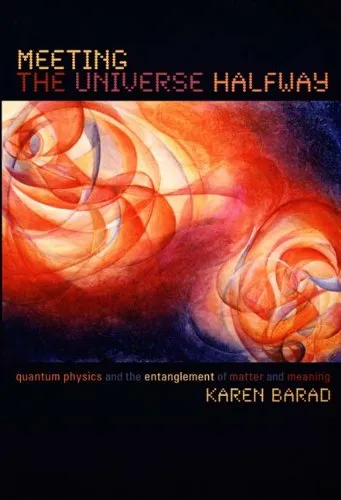
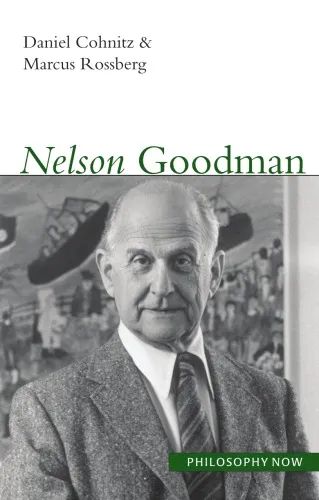
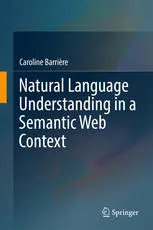
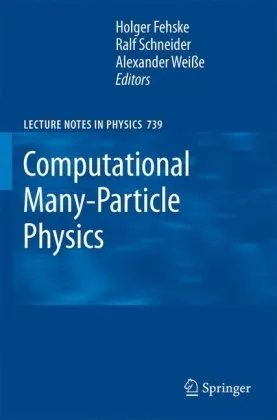
![Quantum physics of atoms, molecules, solids, nuclei, and particles [SOLUTIONS]](https://s3.refhub.ir/images/thumb/Quantum_physics_of_atoms__molecules__solids___16894.webp)
